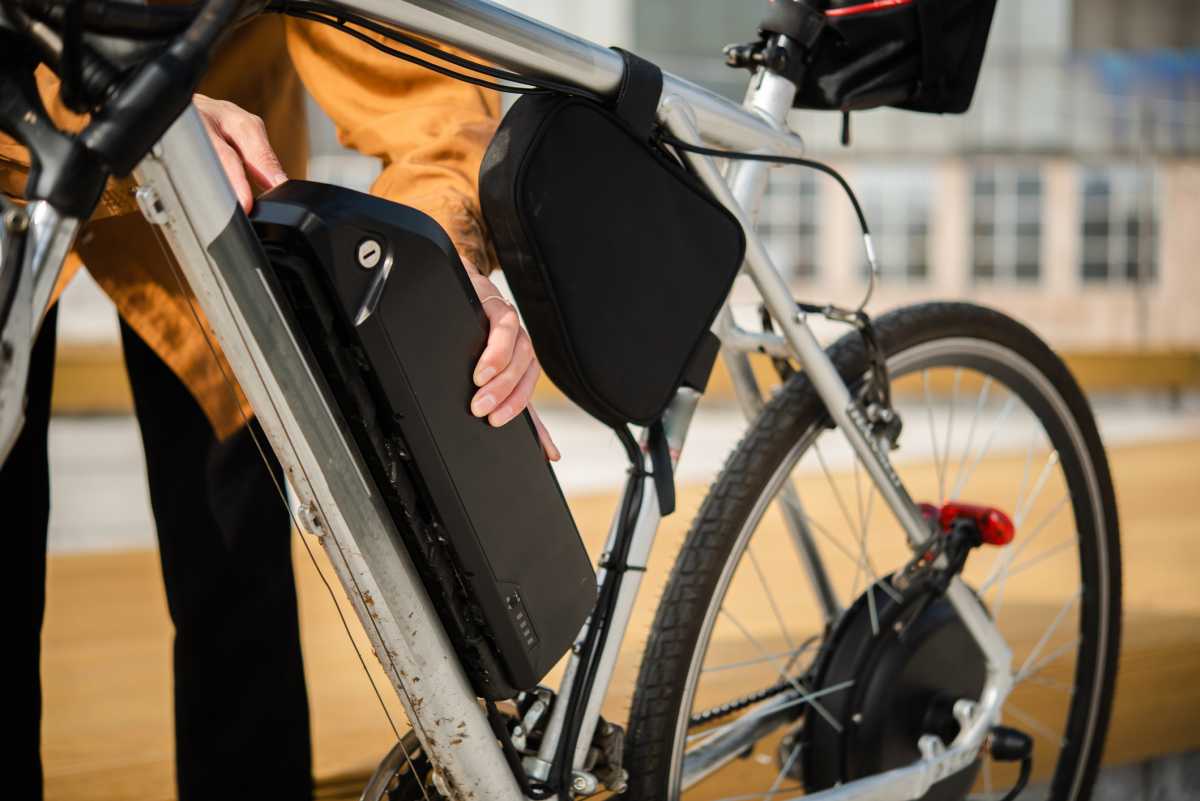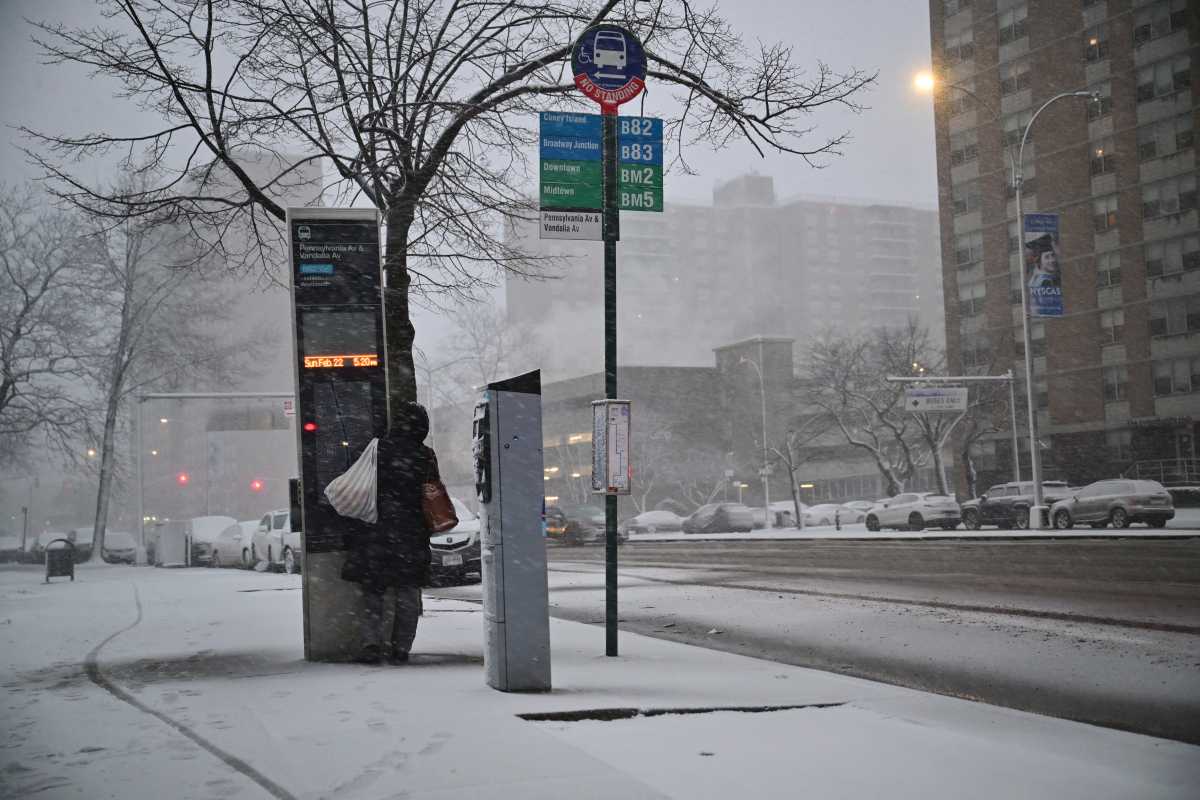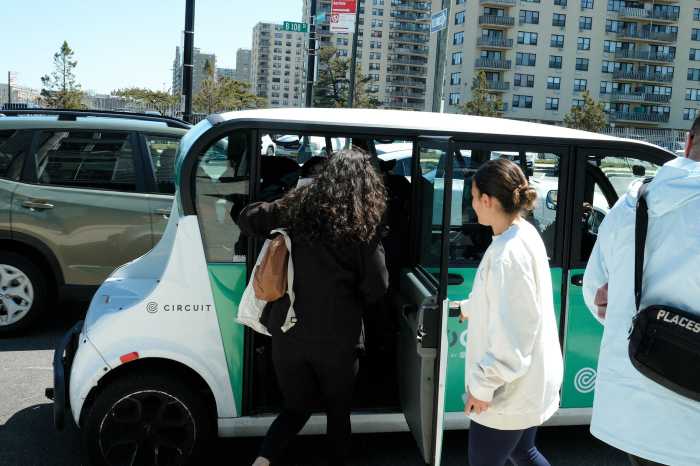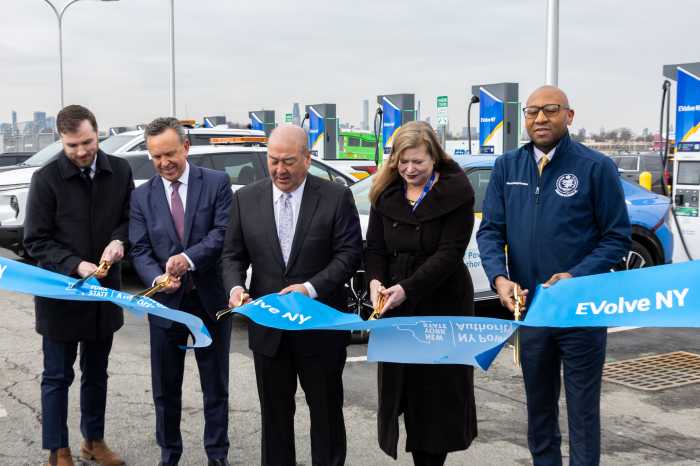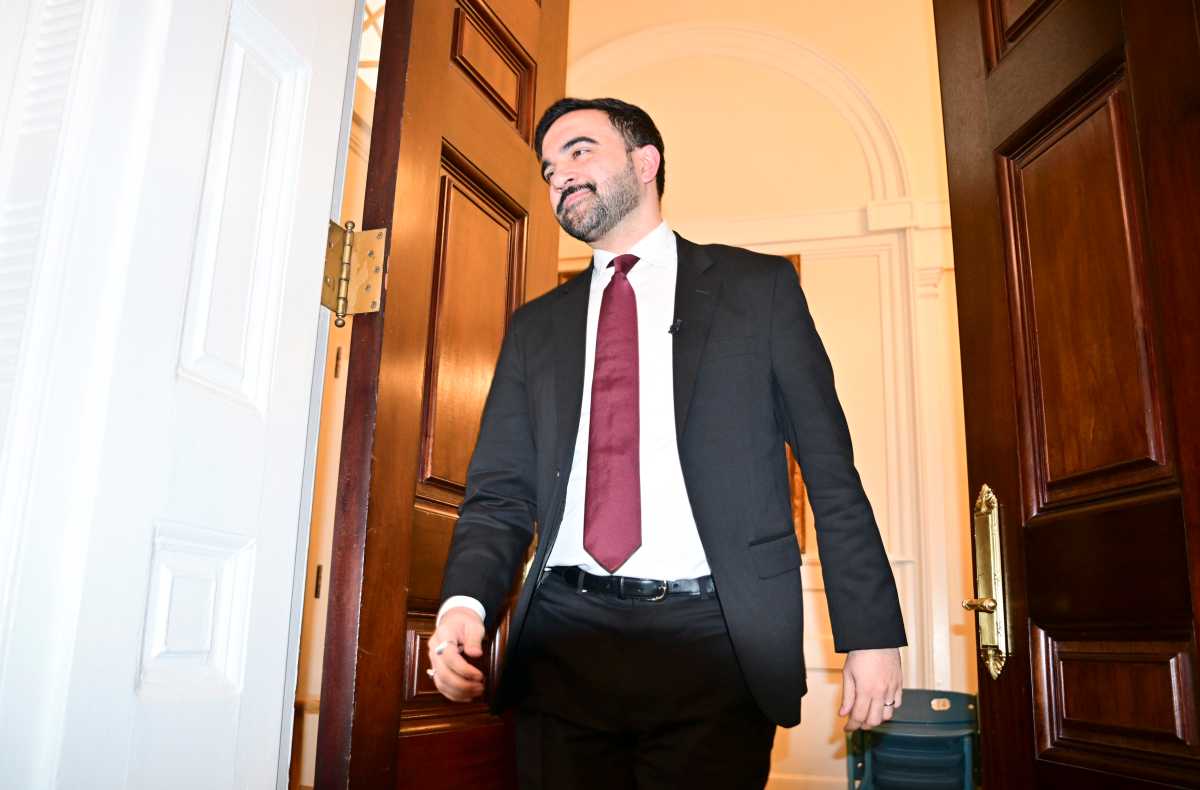The New York City Department of Transportation (DOT) announced on Thursday, Jan. 2, a groundbreaking initiative to expand access to safe e-bike battery charging on sidewalks across the city.
The program includes new rules that will allow the installation of charging cabinets and storage stations at key locations, aiming to support micro-mobility users while addressing safety concerns surrounding lithium-ion batteries.
As part of the initiative, the New York City Housing Authority (NYCHA) and Con Edison will install outdoor charging and storage stations at four developments: Queensbridge North and South in Long Island City, Queens, De Hostos in Manhattan and Van Dyke in Brooklyn.
DOT Commissioner Ydanis Rodriguez said in Thursday’s statement that the rules would authorize property owners and tenants to apply for installing electricity battery swapping and charging cabinets on public sidewalks in front of their buildings. The new rules will take effect when the application process opens on Feb. 1.
The guidelines detail that a battery swapping and charging cabinet must be installed outdoors and adjacent to buildings with ground-floor commercial and community facilities and residential buildings with five or more housing units.
Each battery swapping and charging cabinet must comply with existing requirements, including clear paths for pedestrians and minimum clarity requirements for existing fixtures such as subway entrances and bus stops. The cabinets must also comply with the new size and installation requirements.
The FDNY will work in tandem with the DOT to review and approve each cabinet as part of their current Technology Management (TM) process to ensure that the cabinets have appropriate fire safety technology, such as fire suppression, ventilation, temperature control and automatic shutoff if a battery is overheating.
Rodriguez said that installing charging infrastructure throughout the five boroughs will support the growth of e-bikes while protecting residents from deadly fires. “These new rules will expand access to safe e-bike charging options and are informed by our public pilot, which increased the use of safer certified e-bike batteries, reduced in-home charging and gave delivery workers greater peace of mind,” Rodriguez said in Thursday’s statement.
The expansion of sidewalk charging cabinets builds on an existing e-bike charging pilot program launched to reduce fire risks caused by e-bike charging in apartments.
A group of pre-registered food delivery workers participated in the program, which tested different battery charging technologies with DOT charging stations and featured swapping cabinets from Popwheels and Swobbee. The six-month pilot program ended in September 2024, but the DOT is extending the service at three pilot locations. Initial results of the pilot program showed that workers reduced -with some even eliminating- home battery charging.
The new rule is also a key component of Mayor Adams’ Charge Safe, Ride Safe initiative, announced in March 2023. This initiative aims to combat lithium-ion battery fires and support safe e-mobility use.
The plan has four key points: promoting and incentivizing safe battery use, increasing educational outreach to electric mobility users, advocating for more federal regulation and expanding enforcement against high-risk situations. Adams also signed five bills into law to strengthen the regulation of lithium-ion batteries being sold in the city and improve fire safety related to battery fires.
According to the DOT, the rising popularity of e-scooters and e-bikes, often equipped with low-quality and uncertified lithium-ion batteries, along with unsafe charging practices, has led to an increase in lithium-ion battery fires. Fires started by lithium-ion batteries are now the leading cause of fires and fire deaths in New York City.
The city agency believes that battery swapping and charging cabinets for electric micromobility devices offer a safer alternative for e-bike users. They utilize Underwriters Laboratories (UL)-certified batteries designed to reduce the risk of fire. Furthermore, the batteries in these swapping systems are owned, digitally monitored and inspected by the battery-swapping companies.
NYC DOT is also launching an e-bike trade-in program to promote the safe use of e-bikes and reduce the risk of fires. Delivery workers can exchange their unsafe e-bikes or non-street legal mopeds for a UL-certified e-bike that includes a spare UL-certified battery.
Additionally, this past summer, the FDNY launched a $1 million public education and awareness campaign on the dangers of unsafe lithium-ion batteries.

